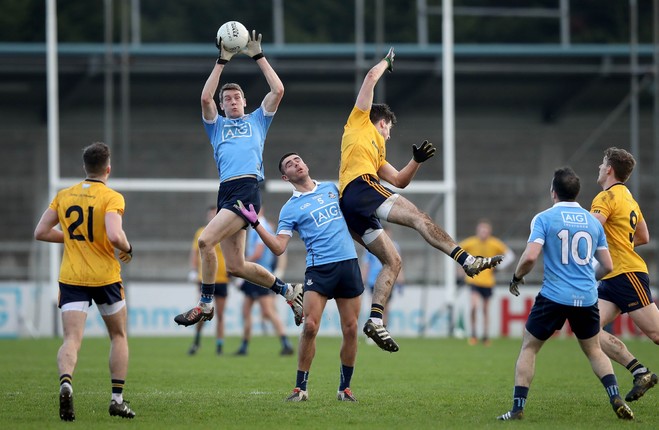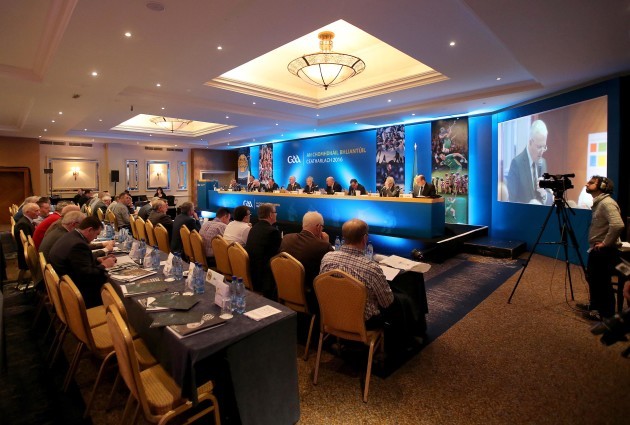TWO WEEKS INTO the new year, and the obituaries for the mark are nearing completion.
Acceptance, or even the agreement to give the mark a chance, was difficult to find in the first place, so we can’t really be surprised that the first days of its rebirth have taken this shape.
This isn’t the first time the GAA has experimented with the mark. Its first trial dates back to 2010 and is remembered fondly by some.
This time around, failure was guaranteed before the mark even came back into operation, and some of the most respected and knowledgeable figures in the game have condemned it.
Tyrone boss Mickey Harte highlighted incidents of confusion after his side’s McKenna Cup meeting with Cavan last weekend. He noted that players tried to indicate their decision to the referee on whether they were taking the mark, only to discover it was the wrong gesture which resulted in the sound of the referee’s whistle. Niall Moyna of DCU says his side “don’t even discuss it.”
Aside from Cavan manager Mattie McGleenan, few others actively involved in Gaelic football have approved the mark. He labelled it “a good enough idea,” which, considering the wholesale level of people rejecting the concept, is the closest you’re going to get to a positive view of the new rule.
The complaints about the mark have repeatedly been expressed.
“It’s not going to work.”
“It won’t promote high-fielding.”
“There’s bigger issues that need to be fixed.”
“It’s change for the sake of change.”
…. And so on.
Indeed, availing of the mark cannot assure you a victory. However, refusing to use it at all certainly doesn’t give you any advantage either.
In recent years, players complained that the difficulty involved in trying to catch a kick-out cleanly made the whole idea of even contesting them a redundant exercise.
After claiming possession in the air, players from the opposition are normally waiting for their return to earth, thus making ball retention for anything more than a few seconds, almost impossible. You either get dispossessed or penalised for over-carrying.
But rather than abstain from high-fielding entirely, why not use something that at least minimises the likelihood of having to face into a scrum after catching a kick-out? The mark can facilitate that.
There’s no demand on players to avail of the mark.
You can choose to play on and have your four steps of freedom before your marker can descend on you again. But, if the situation affords you the time to stop, survey the situation and release the ball into the forwards, then where is the harm in doing that?
Granted, the player marking the one who fetches the ball will always be at a disadvantage because they don’t know in advance which option their opponent will take. And Mickey Harte’s grievance about the confusion involved in communicating your decision to use the mark, raises an interesting point about possible deficiencies in the rule that need to be refined.
But the principle of what the mark is there for, can be a constructive thing if given the chance. Change within the GAA is a difficult thing to achieve, even at a gradual pace.
The decision at last year’s GAA Congress to reject the proposal of bringing the All-Ireland finals forward by two weeks, illustrates the extent of the reluctance to change within the association.
It was a minor concession aimed at relieving pressure on congested club activity, and yet it was shot down. In order for change to have any chance of creating a positive impact, we must first be willing to accept the notion of change.
The mark won’t solve everything in the GAA, but it was never designed to deliver on any such promise. It’s a minor adjustment to the game that could pave the way for more significant changes.
The42 is on Instagram! Tap the button below on your phone to follow us!


